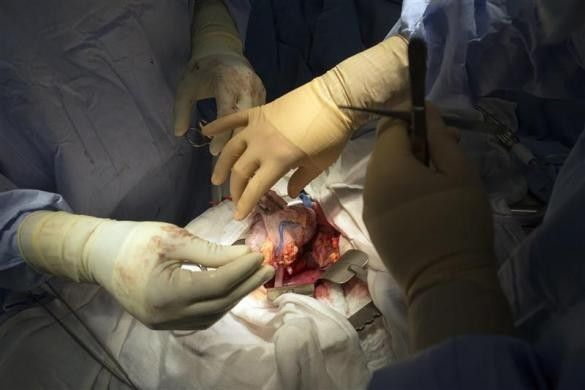Two UK Patients Die After Receiving Kidneys With Parasitic Worms

Two patients, Darren Hughes from Bridgend and Robert Stuart from Cardiff, underwent transplant surgery after which they both died because the kidneys had parasitic worms in it. A Cardiff coroner, Christopher Woolley, ruled that the death was a result of "unintended consequences of necessary medical intervention."
According to the Guardian, the organs were donated by a 39-year-old unnamed man from the north of England. He is said to have lived a rough life and had a history of alcohol use of 240 units per week as well. It is said that he had died from meningitis. A parasitic worm called Halicephalobus gingivalis had caused the meningitis in the man. The organs were rejected by six other transplant centres who either cited reasons of "poor function" or blamed it on the cause of the death.
The coroner, Woolley, said that there was no gross neglect in accepting the kidneys and that there was no test for the rare worm infection. He said that if it was not for the infection, then the kidneys would have functioned properly, and both men would have been alive now. He added that the medical professionals could not be criticised.
According to Woolley, the kidneys had not been rejected because the parasitic worm was an organism that was almost unknown to the world of medical science and there was no test for it while taking into consideration the circumstance of the transplant. He said that both Hughes and Stuart had given their full consent, despite knowing that the donor died from what was thought to be meningitis. While the pair were on dialysis, they seemed to have faced a risk of dying.
Ian Hughes, father of Darren Hughes, said that the reason an organ transplant is usually performed is to save or prolong a person's life, but then this transplant had cut short his son's life. He hoped that people who were on the transplant list were not put off by the deaths of Darren and Jim. He added that organ transplant was a life-saving service that helped many people.
According to Julie Lewis from Irwin Mitchell, the families would be pursuing the case as well as make possible negligence claims further with the UK's medical regulator, General Medical Council. She added that the families had undergone "an incredibly rare experience".





















